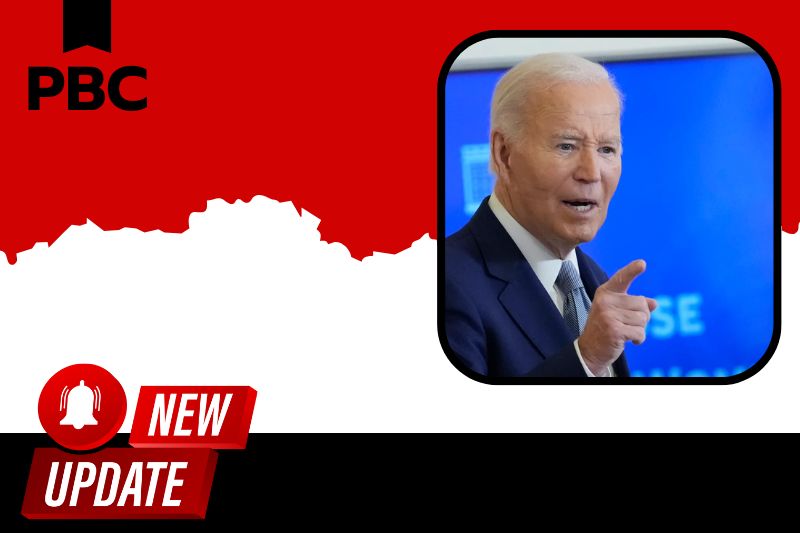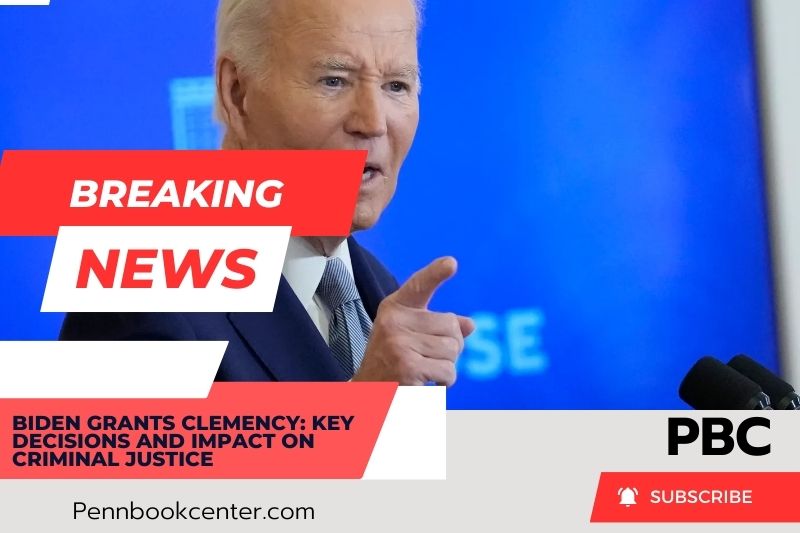When we say Biden grants clemency, we’re referring to the exercise of presidential clemency power. This includes both pardons and sentence commutations.
A pardon forgives a person for their crime, removing the legal consequences of their conviction, while commutation reduces the severity of the sentence but does not clear the conviction.
President Joe Biden’s recent actions represent the largest single-day act of clemency in modern history. On this particular day, 1,500 sentences were commuted, and 39 individuals received pardons for non-violent offenses.
The recipients were often people who had shown significant remorse and made strides in rehabilitation, which is at the heart of Biden’s clemency policy.
Key Individuals Affected by Biden’s Clemency

Biden’s decision to grant clemency affected 1,500 individuals who had previously been placed on home confinement during the COVID-19 pandemic. These individuals were chosen due to their demonstrated commitment to rehabilitation and their reintegration into society.
Notably, many had completed educational programs, secured jobs, and made meaningful contributions to their communities.
Additionally, 39 non-violent offenders were granted pardons. These individuals include military veterans who had devoted their time to community service, nurses who assisted during natural disasters, and addiction counselors who helped young men of color.
By granting pardons, Biden acknowledged the efforts these individuals had made in rebuilding their lives after their past mistakes.
How Does Clemency Work Under Biden?
The clemency process in the Biden administration is detailed and rigorous. Biden’s team, including the White House Counsel and the Justice Department’s Office of the Pardon Attorney, carefully reviews clemency petitions.
The president’s criteria for granting clemency prioritize those who have shown rehabilitation, demonstrated remorse, and contributed positively to their communities.
For example, many of the recipients of Biden’s commutations and pardons were convicted of drug offenses or other non-violent crimes. These individuals had either served significant portions of their sentences or were facing long sentences that seemed disproportionate to their crimes.
Biden’s actions are part of a larger push for criminal justice reform, especially in addressing sentencing disparities that disproportionately affect marginalized communities.
The Impact of Biden’s Clemency on Criminal Justice Reform

By granting clemency, Biden aims to correct historical injustices within the criminal justice system.
One key focus is addressing sentencing disparities for non-violent offenders, particularly those convicted of drug offenses. The war on drugs has disproportionately impacted communities of color, and clemency is a step toward equal justice under the law.
Furthermore, clemency helps promote rehabilitation and reintegration into society. Biden’s clemency actions show that second chances are possible for those who have demonstrated growth and remorse.
It is a powerful message that the justice system should prioritize rehabilitation over punishment and support individuals in making meaningful changes to their lives.
Public Reactions to Biden’s Clemency
The reactions to Biden’s clemency decisions have been mixed. Human rights groups and Democratic lawmakers have largely praised the actions as a necessary step for criminal justice reform.
Advocates see Biden’s clemency as a way to offer second chances to individuals who have demonstrated their commitment to positive change.
However, the decision to grant a pardon to Hunter Biden, President Biden’s son, has sparked some controversy. Critics argue that the timing of the pardon was questionable, given Biden’s earlier statements about not granting clemency to his son.
Despite this, many view Biden’s broader clemency actions as part of his legacy of striving for fairness and justice.
What’s Next for Clemency Under Biden?
As Biden’s presidency nears its end, further clemency actions are expected.
These may include additional commutations for non-violent offenders and potentially addressing those on federal death row. With less than six weeks remaining in his term, Biden has indicated that he plans to continue reviewing clemency petitions.
His administration’s focus on equal justice and rehabilitation will likely continue to shape future clemency decisions.
These actions are seen as a crucial part of Biden’s efforts to reform the criminal justice system, ensuring that those who have shown remorse and made efforts to rehabilitate themselves are given a second chance.
To explore net worth of Joe Biden, click here to learn more.
Conclusion
Biden’s clemency decisions are a powerful step toward criminal justice reform and equal justice. As his presidency nears its end, more decisions may follow, and we’ll be here to keep you informed. Share your thoughts in the comments, and for more updates, visit Pennbookcenter.




